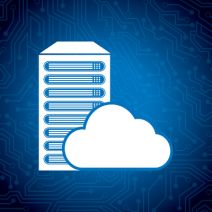FRS Pros Blog
 If you are a technician and a network you are responsible for begins to go down because the traffic that is coming into the network is unusually high, there is a good chance you are experiencing a distributed denial of service attack, or DDoS. These attacks, which are extraordinarily difficult to prevent altogether, can be exceedingly costly for a business.
If you are a technician and a network you are responsible for begins to go down because the traffic that is coming into the network is unusually high, there is a good chance you are experiencing a distributed denial of service attack, or DDoS. These attacks, which are extraordinarily difficult to prevent altogether, can be exceedingly costly for a business.
 Internet-users rejoice all over the world, for just last week, Internet Explorer 8, 9, and 10, will no longer be supported by Microsoft. That’s right; no more patches or security updates for good old IE. This makes continuing to use older versions of Windows a cause for concern. Perhaps this is for the best, but in light of this news, users of IE will want to either update to IE 11, or switch to a new browser.
Internet-users rejoice all over the world, for just last week, Internet Explorer 8, 9, and 10, will no longer be supported by Microsoft. That’s right; no more patches or security updates for good old IE. This makes continuing to use older versions of Windows a cause for concern. Perhaps this is for the best, but in light of this news, users of IE will want to either update to IE 11, or switch to a new browser.
 The continuity of your business should be a major priority, especially considering how the livelihood of yourself and your employees is on the line. Believe it or not, there are some organizations out there that don’t give a second thought to the preservation of their data and critical assets. Therefore, it’s clear that you need to pay proper attention to how your organization handles problems like natural disasters, data loss, hacking attacks, and other hazardous incidents.
The continuity of your business should be a major priority, especially considering how the livelihood of yourself and your employees is on the line. Believe it or not, there are some organizations out there that don’t give a second thought to the preservation of their data and critical assets. Therefore, it’s clear that you need to pay proper attention to how your organization handles problems like natural disasters, data loss, hacking attacks, and other hazardous incidents.
 After a long, hard day at the office, you might be tempted to just log off of your workstation so you can get right back into it the next day. However, you also have the option to shut down the PC, which can be beneficial at times. So, what should you do; power down your desktop, or simply log off? Both have their own pros and cons, so it’s important that you’re informed of how you make this decision.
After a long, hard day at the office, you might be tempted to just log off of your workstation so you can get right back into it the next day. However, you also have the option to shut down the PC, which can be beneficial at times. So, what should you do; power down your desktop, or simply log off? Both have their own pros and cons, so it’s important that you’re informed of how you make this decision.
 Implementing proper IT solutions is challenging for the average SMB, and it’s difficult without the aid of a proper IT department. Organizations that can’t afford a full in-house IT department sometimes resort to less savory methods of managing their technology, which can be dangerous for business continuity, data storage compliance, and security.
Implementing proper IT solutions is challenging for the average SMB, and it’s difficult without the aid of a proper IT department. Organizations that can’t afford a full in-house IT department sometimes resort to less savory methods of managing their technology, which can be dangerous for business continuity, data storage compliance, and security.
 Whenever hackers show themselves, they always spell trouble. Whether it’s stealing credentials or completely taking over someone’s computer, a hacker has a plethora of targets and methods that can be irritating for the average PC user, or business executive. In fact, hackers are so crafty that they can even hack into hospital equipment.
Whenever hackers show themselves, they always spell trouble. Whether it’s stealing credentials or completely taking over someone’s computer, a hacker has a plethora of targets and methods that can be irritating for the average PC user, or business executive. In fact, hackers are so crafty that they can even hack into hospital equipment.
 Have you ever been in a situation where you have a friend who wants to use your personal computer for who-knows-what? In cases like this, you would want them to use a guest account, so as not to put your personal files at risk. Here’s how you can set it up in all commonly used Windows operating systems.
Have you ever been in a situation where you have a friend who wants to use your personal computer for who-knows-what? In cases like this, you would want them to use a guest account, so as not to put your personal files at risk. Here’s how you can set it up in all commonly used Windows operating systems.
 It’s a known fact that technology doesn’t last forever. In fact, technology grows at such an astounding rate that some users often feel the need to replace their devices the second a bigger and better tech is launched. What if this unprecedented growth and increase in reliability become a hindrance to the sales of PC manufacturers?
It’s a known fact that technology doesn’t last forever. In fact, technology grows at such an astounding rate that some users often feel the need to replace their devices the second a bigger and better tech is launched. What if this unprecedented growth and increase in reliability become a hindrance to the sales of PC manufacturers?
 With technology being so important in the modern office, there are thousands of gadgets produced each year that are designed to work with existing technology to deliver marginal-to-significant increases to an individual’s productivity. Each year, many of these gadgets fail in some way or fall out of public consciousness quickly, becoming nothing but the answer to a trivia question a decade from now at your favorite watering hole.
With technology being so important in the modern office, there are thousands of gadgets produced each year that are designed to work with existing technology to deliver marginal-to-significant increases to an individual’s productivity. Each year, many of these gadgets fail in some way or fall out of public consciousness quickly, becoming nothing but the answer to a trivia question a decade from now at your favorite watering hole.
 Technology solutions for small and medium-sized businesses can be complex, which is why simplification is at the top of a lot of executives’ priorities. To this end, virtualization is a key component, helping organizations make their IT easier to manage. What effect does this have on data security?
Technology solutions for small and medium-sized businesses can be complex, which is why simplification is at the top of a lot of executives’ priorities. To this end, virtualization is a key component, helping organizations make their IT easier to manage. What effect does this have on data security?
 Virtually every tech user wishes their mobile device battery would last longer, yet not every user understands that they can achieve this simply by adjusting their device settings. Here are seven simple adjustments you can make to your Android device in order to get its battery power to last longer.
Virtually every tech user wishes their mobile device battery would last longer, yet not every user understands that they can achieve this simply by adjusting their device settings. Here are seven simple adjustments you can make to your Android device in order to get its battery power to last longer.
 Tablets are definitely becoming a staple in the consumer electronics world. For the longest time, the tablet PC was an expensive, clunky device that just didn't wow consumers. Some businesses had adopted tablets back in the day, but they were difficult to use, hard to support, and they simply didn't perform for the price tag. However, like many consumer electronics, Apple reinvigorated the tablet market with the original iPad, and now it would seem tablets are here to stay. The question is, are they right for businesses?
Tablets are definitely becoming a staple in the consumer electronics world. For the longest time, the tablet PC was an expensive, clunky device that just didn't wow consumers. Some businesses had adopted tablets back in the day, but they were difficult to use, hard to support, and they simply didn't perform for the price tag. However, like many consumer electronics, Apple reinvigorated the tablet market with the original iPad, and now it would seem tablets are here to stay. The question is, are they right for businesses?
 Email is (and has been) a prime method of communication for businesses of all sizes. With email comes a whole slew of issues that are essentially synonymous with the technology; spam, information overload, phishing, and information privacy. Even Nationwide small businesses that only do business locally are at risk of these issues. Personal email accounts are equally at risk. Employing proper precautions and practices whenever communicating via email is very important to prevent the risk of security compromises, monetary loss, and even legality issues.
Email is (and has been) a prime method of communication for businesses of all sizes. With email comes a whole slew of issues that are essentially synonymous with the technology; spam, information overload, phishing, and information privacy. Even Nationwide small businesses that only do business locally are at risk of these issues. Personal email accounts are equally at risk. Employing proper precautions and practices whenever communicating via email is very important to prevent the risk of security compromises, monetary loss, and even legality issues.
 Your identity has quite a lot of value, especially in the wrong hands. Security firm ZoneAlarm put together some numbers in 2011 concerning identity fraud, and it even shocked us. Let's talk about a few of these statistics and what it means.
Your identity has quite a lot of value, especially in the wrong hands. Security firm ZoneAlarm put together some numbers in 2011 concerning identity fraud, and it even shocked us. Let's talk about a few of these statistics and what it means.
 When you mention the term 'disaster recovery,' most people think about the big ground-shattering events like earthquakes, fires, floods, tropical storms, etc. While these natural events are certainly disasters and devastating in their own right, smaller things can constitute as a disaster for your business, and they aren't seasonal.
When you mention the term 'disaster recovery,' most people think about the big ground-shattering events like earthquakes, fires, floods, tropical storms, etc. While these natural events are certainly disasters and devastating in their own right, smaller things can constitute as a disaster for your business, and they aren't seasonal.





